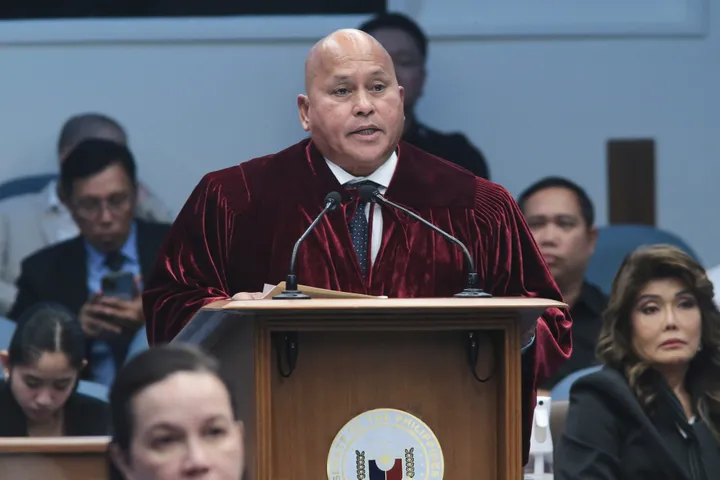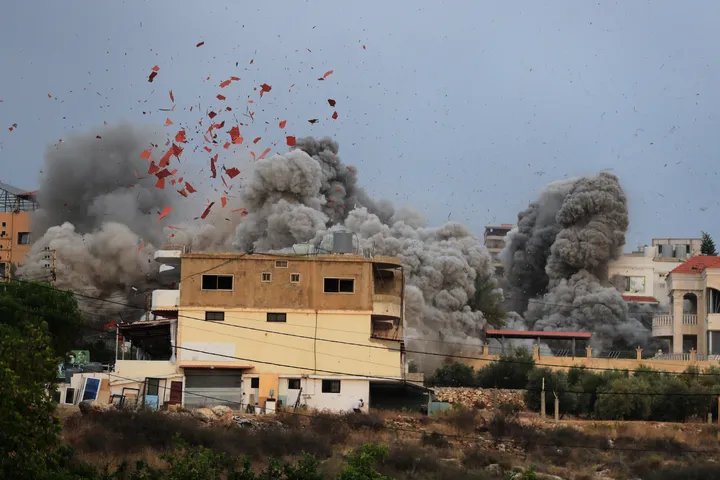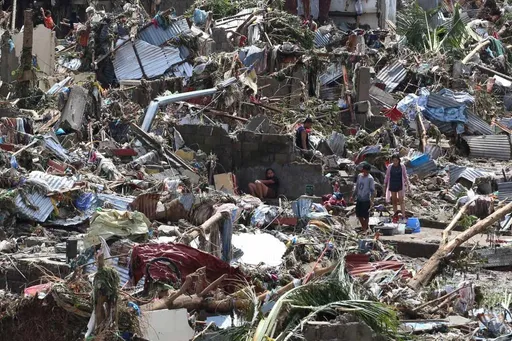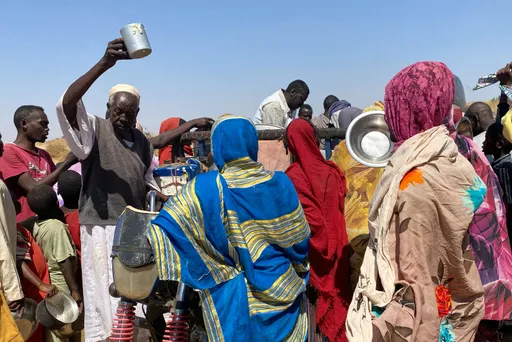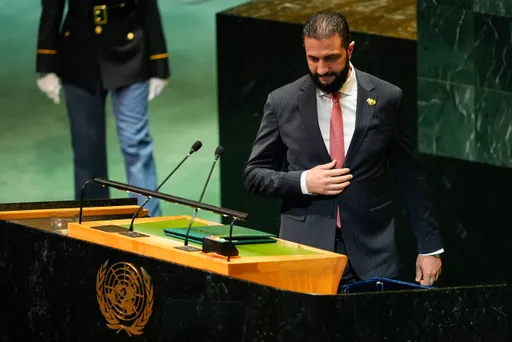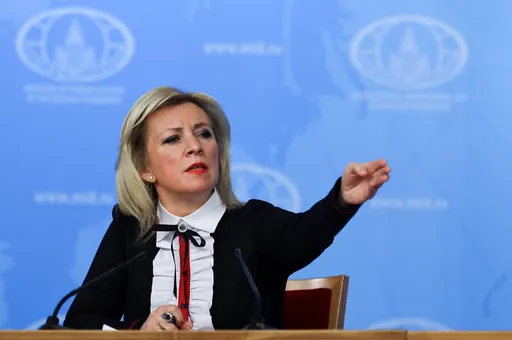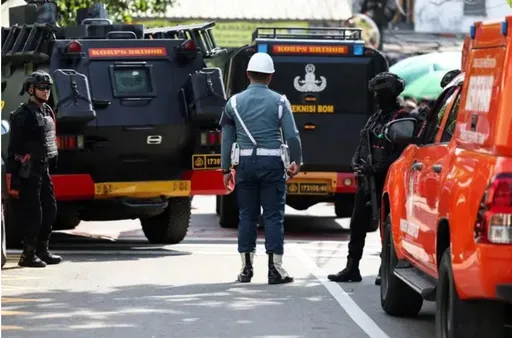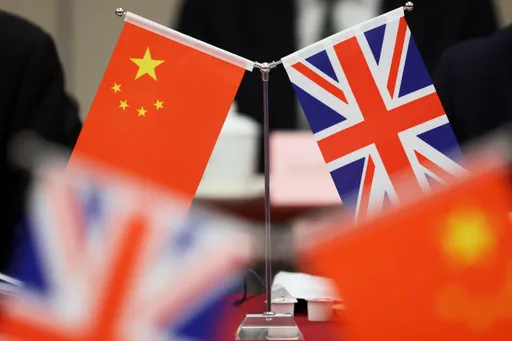Hundreds of masked Hamas members paraded in the besieged Gaza and the group’s top leader made his first public appearance since the blockaded enclave ravaged by 11 days of Israel's brutal air, land, and sea strikes.
Saturday marked the first full day of a cease-fire, and Egyptian mediators held talks to firm up the truce which ended the latest Gaza war.
The 11-day war left nearly 250 dead – the vast majority Palestinians – and brought widespread devastation to the already impoverished Hamas-governed Gaza.
And residents began assessing damage.
One of Gaza City's busiest commercial areas, Omar al Mukhtar Street, was covered in debris, smashed cars and twisted metal after a 13-floor building in its center was flattened in an Israeli air strike. Merchandise was covered in soot and strewn inside smashed stores and on the pavement. Municipal workers swept broken glass and twisted metal from streets and sidewalks.
“We really didn’t expect this amount of damage," said Ashour Subeih, who sells baby clothes.
“We thought the strike was a bit further from us. But as you can see not an area of the shop is intact.” Having been in business for one year, Subeih estimated his losses were double what he has made so far.
Drone video and photos showed some city blocks reduced to rubble, in between homes and businesses left standing.
READ MORE:Israel-Palestine ceasefire holds as aid arrives in bombarded Gaza
Hamas leader pays respects to commander killed in war
On Saturday, hundreds of Hamas fighters wearing military camouflage paraded past the mourning tent for Bassem Issa, a senior commander killed in the fighting. The top Hamas leader in Gaza, Yehiyeh Sinwar, paid his respects in his first public appearance since the war began.
Israel bombed the house of Sinwar, along with that of other senior Hamas figures, as part of its attack on what it said was the group's military infrastructure.
Israel's defence minister, Benny Gantz, has said top Hamas leaders remain targets, despite the ceasefire.
Still, there was a widespread expectation that the ceasefire would stick for now, even if another round of fighting at some point seems inevitable.
READ MORE:Thousands of Gazans return to destroyed homes, Biden vows to rebuild
UNSC stresses humanitarian assistance need in Gaza
The UN Security Council on Saturday called for "full adherence to the ceasefire" in the conflict between Israelis and Palestinians in the Gaza in its first statement since violence erupted on May 10.
Security Council members also stressed "the immediate need for humanitarian assistance to the Palestinian civilian population, particularly in Gaza."
The statement received backing from the US delegation – which had blocked earlier drafts – only after the removal of a paragraph condemning the violence, a sensitive issue since it raised the question of blame.
An earlier draft said that "Security Council members condemned all acts of violence against civilians, including acts of terror, as well as acts of provocation, incitement and destruction."
That draft also "expressed concern about the tensions and violence in east Jerusalem, especially in and around the holy sites, and urged for the respect of the historic status quo at the holy sites."
In a statement on Saturday, the Israeli Foreign Ministry thanked the United States "for its continued support for Israel and its right to defend its citizens," and it placed "full blame" for the recent violence on Hamas militants for firing thousands of rockets at Israel.
"We expect that the international community condemn and disarm Hamas, and ensure Gaza’s rehabilitation while preventing the diversion of funds and weapons to terrorism," the statement said.
There was no immediate reaction from the Palestinian side.
The US delegation, always one of Israel's strongest supporters in the UN, had also rejected a French draft demanding an immediate end to hostilities and calling for the unimpeded distribution of humanitarian aid throughout Gaza.
The final statement, proposed by China, Norway and Tunisia, simply noted that the Council members "mourned the loss of civilian lives resulting from the violence."
It supported a call from Secretary-General Antonio Guterres for the international community to work with the UN to develop a "robust package of support for a swift, sustainable reconstruction and recovery."
The Council reiterated the importance of achieving a comprehensive peace based on the vision of a region where Israelis and the Palestinians live side by side in peace with secure borders.
The statement also recognised "the important role Egypt (and) other regional countries" played in it, as well as the so-called Middle East Quartet, comprising the US, Russia, the European Union and the UN.
Victory claims
Thousands rallied in the Israeli city of Tel Aviv, calling for coexistence between Jews and Arabs.
Like the three previous wars, the latest round of fighting ended inconclusively. Israel claimed it inflicted heavy damage on Hamas with hundreds of bruising air strikes but once again was unable to halt the rockets.
Hamas also claimed victory but faces the daunting challenge of rebuilding in a territory already suffering from high unemployment and a coronavirus outbreak.
Days of unrest at Al Aqsa during Islam's holy fasting month of Ramadan forced Hamas to demand Israeli forces vacate the compound by 6:00 pm (1500 GMT) on May 10 and stop expulsion of Palestinians from their homes in occupied East Jerusalem.
Hamas then fired rockets at Israel and its occupied areas when the deadline expired. Israel commenced a heavy aerial bombardment on Gaza, a small enclave blockaded by Tel Aviv since 2007 from land, air and sea.
READ MORE: Why Israel can't defeat the Palestinian resistance
Anger against Abbas
On Friday, hours after the ceasefire took effect, thousands of Palestinians in the Al Aqsa compound chanted against Palestinian President Mahmoud Abbas and his self-rule government.
“Dogs of the Palestinian Authority, out, out," they shouted, and "The people want the president to leave.”
It was an unprecedented display of anger against Abbas. The conflict also brought to the surface deep frustration among Palestinians, whether in the occupied West Bank, Gaza or within Israel, over the status quo, with the Israel-Palestine peace process all but abandoned for years.
Despite his weakened status, Abbas will be the point of contact for any renewed US diplomacy, since Israel and the West, including the US, consider Hamas a terrorist organisation.
US Secretary of State Antony Blinken is to meet with Abbas and Israeli leaders when he visits in the coming week. Abbas is expected to raise demands that any Gaza reconstruction plans go through the Palestinian Authority to avoid strengthening Hamas.
Abbas met Saturday with Egyptian mediators, discussing the rebuilding of Gaza and internal Palestinian relations, according to the official Palestinian news agency Wafa.
An Egyptian diplomat said that two teams of mediators were in Israel and Palestine to continue talks on firming up a ceasefire deal and securing long-term calm.
The diplomat said discussions include implementing agreed-on measures in Gaza and Jerusalem, including ways to prevent practices that led to the latest conflict. He did not elaborate. He was apparently referring to violence at the Al Aqsa Mosque and the planned eviction of Palestinian families from the Sheikh Jarrah neighborhood in east Jerusalem.
The diplomat spoke on condition of anonymity to discuss behind-the-scenes deliberations.
READ MORE: Israeli police attack Palestinians at Al Aqsa hours after Gaza ceasefire
Palestinians grapple with shortages
Separately, a 130-truck convoy with humanitarian aid and medical supplies reached the Gaza border from Egypt on Saturday, according to a senior Egyptian official at the border crossing. He spoke on condition of anonymity because he was not authorised to speak to reporters.
Across Gaza, an assessment of the damage to the territory's already decrepit infrastructure began.
The ministry of public works and housing said that 769 housing and commercial units were rendered uninhabitable, at least 1,042 units in 258 buildings were destroyed and just over 14,500 units suffered minor damage.
The United Nations said about 800,000 people in Gaza do not have regular access to clean piped water, as nearly 50 percent of the water network was damaged in the fighting.
The Gaza Health Ministry says at least 248 Palestinians were killed, including 66 children and 39 women, with 1,910 people wounded.
READ MORE: Ceasefire between Israel and Palestinian groups goes into effect in Gaza


